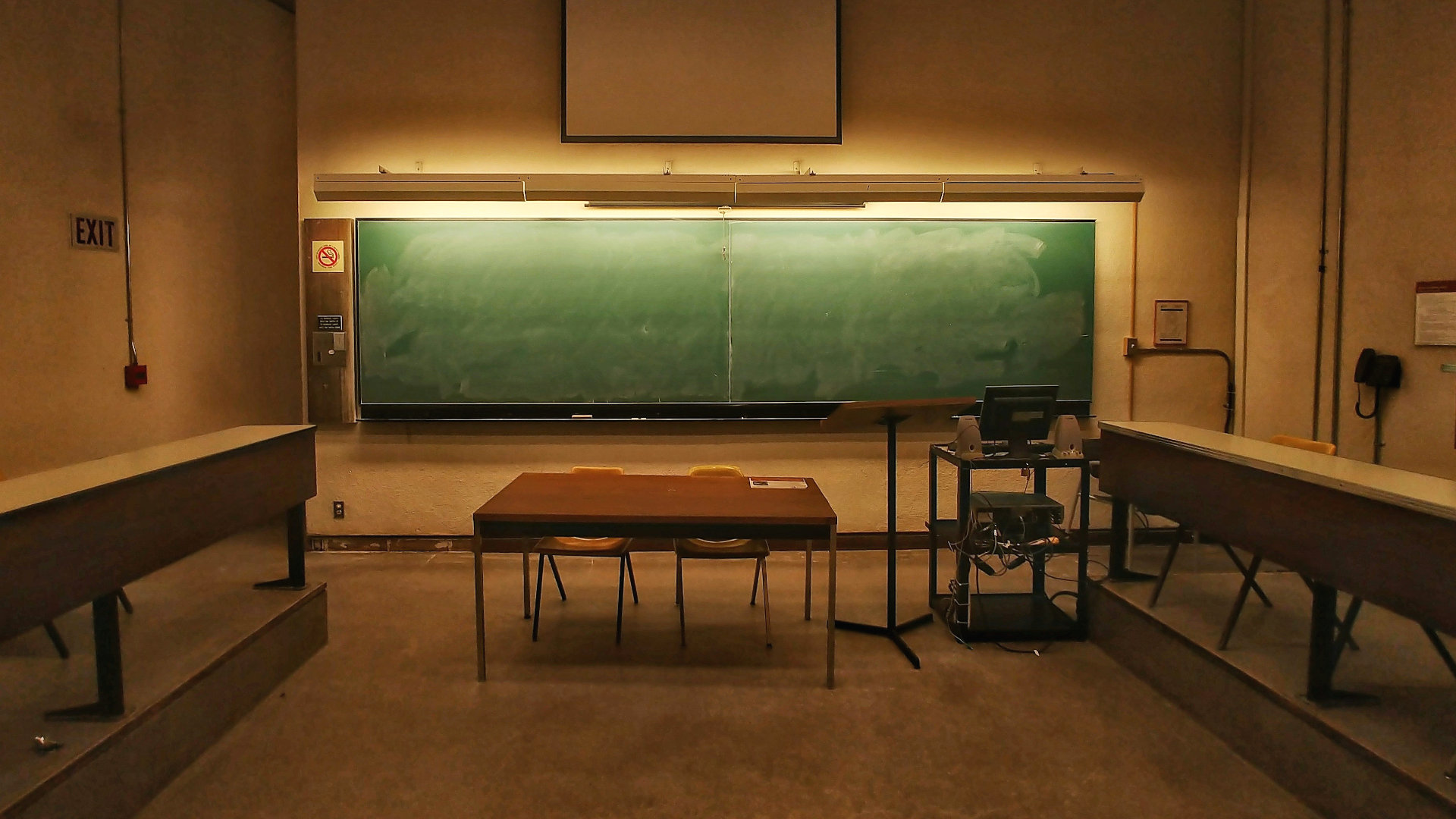In 2013, Radhika Nagpal, then a faculty member at Harvard University, published a widely shared blog post titled, “The Awesomest 7-Year Postdoc or: How I Learned to Stop Worrying and Love the Tenure-Track Faculty Life.” The genius of the essay was in how it took the focus off the elephant-in-the-room of constant judgment and shifted it to the fact that science is supposed to be enjoyable.

I hear fewer mentions of the article today, but authoritarian attacks on science infrastructure have put tenure back on the national radar. It is a target because universities are considered to be powerful bastions of progressive politics, and a way to undermine them is to destroy their chief instrument of job security for faculty. I argue that there is no time like the present for putting a critical lens on a process which has built the academic workforce for generations.
Tenure is an important institution, designed to protect intellectual freedom at colleges and universities. But more than that, it is the defining professional advancement step for an academic, a barrier that casts a shadow over the daily lives of junior tenure-track faculty around the world.
How does one attain it? Google’s AI-driven chatbot Gemini tells me that one must demonstrate a “record of excellence and creativity in the field,” among other confusing instructions that form a word salad not unlike what I’ve heard from professional peers. And what does “excellence” mean? Its definition depends on the field of study, institution, department, promotions committee, intellectual and political climate, and many other influences. Unsurprisingly, demographics matter because biases are a factor in who gets tenure and who doesn’t.
Tenure is an important institution, designed to protect intellectual freedom at colleges and universities.
The expectations of what is needed amount to a series of rumors: In some subfields of the humanities and social sciences, a well-received book project and adequate teaching evaluations are allegedly the key. In fields within the social and natural sciences, a list of impactful publications is supposed to be the driver. To some, the ability to secure external funding can put you over the top. And then there’s teaching: It’s important but not that important, especially at research-first institutions. Then there is “service,” whatever that means.
Why must the tenure process be so opaque? The charitable interpretation is that the flexible benchmarks accommodate the scholarly breadth of junior scholars. But after my own travels through the endeavor, I have a more sardonic take: Tenure has become academia’s chief fearmonger that often encourages productivity for its own sake, transforms scholars into fundraisers, and, most importantly, makes them subservient to the church of the professoriate.
This summary might be read as a bit hyperbolic, and maybe unfair. There are defensible reasons for strict standards for granting tenure. I don’t believe that anyone is entitled to a cozy profession — and, yes, many academic jobs qualify. And if my peers don’t want to be my coworker because of poor performance, questionable ethics, or a toxic attitude, then they should have the opportunity to express their opinions with a vote. Relatedly, the tenure process can serve as a chance to purge problematic people from our professional circles, although it can also protect or empower sociopaths later in their careers.
My rather thin defense of the status quo ends there. The fundamental problem with the tenure process is that it has struggled to recognize that knowledge is curated, created, and consumed differently today than even a decade ago. Publishing has changed, as has classroom education, and the odds of securing grant funding. But more than that, many of the most consistent benchmarks across tenure discussions can be readily hacked.
To put this in perspective, I’ll provide interpretations on formal advice that I received from well-meaning senior colleagues around the world:
If you want strong teaching evaluations, betray your integrity and do not impose anything resembling high standards. And definitely do not build an ambitious new course that cuts across disciplines, forces you to explore a new literature, or potentially makes your students uncomfortable.
If you want high citation counts, engage in practices that promote the proliferation of your studies, work with (or in the realm of) highly cited scientists, and/or focus on well-known problems. This is true even if you know that these high-impact areas are sinking ships, as those who love metrics don’t subtract citations for stupid ideas as long as they are popular.
The fundamental problem with the tenure process is that it has struggled to recognize that knowledge is curated, created, and consumed differently today than even a decade ago.
If you want grant money, make friends with program officers at funding agencies, collaborate with established people, and do science (at least in part) in order to raise money. Folded into this is the obligation to chase the topics that agencies are funding at a high level, rather than what your skill and ethics lead you to believe are the right questions.
Some of this advice runs counter to the very reason why I fell in love with science. When I have told people this, I’ve received one type of response akin to “You’re not wrong but do it for the love after you’ve earned tenure.”
My translation: You might care about a current neglected ecological disaster, famine, epidemic, or genocide. And even though the topics aren’t strictly within the field in which you were trained, you might have a unique skill set that can shed light on them. But wait until you have job security to do this work. In the meantime, focus your effort in areas that your peers recognize, and then transform into a whole-person scholar after you get the votes — four or five or eight years into a hypothetical future.
So far, my take resembles standard academic potshotting, heavy on complaints and light on practical solutions. But it isn’t. I recognize that there are establishment scientists who have succeeded despite following a wayward path, many of whom share my sentiment. And alternative models already exist for how scientists can be evaluated — the Declaration on Research Assessment, or DORA, for example, aims to recognize “the need to improve the ways in which researchers and the outputs of scholarly research are evaluated.” Other fixes also can encourage junior scientists to be their best scientific selves and make discoveries, rather than capitulate to beliefs masquerading as merit markers.
For example, we could encourage rather than discourage exploration, as intelligent pivoting is (in my view) as good a proxy for scientific wits as embedding oneself in an influential corner of a field. Further, one can argue that early in a career, when plasticity and energy are highest, is when you should take risks and venture without fear. Later in your career, when administrative obligations are high and an identity is formed, could be the better time to focus. (My broader view, though, is that there is no singular right way.)
More generally, we can craft tenure standards to fit the ambitions of individuals in order to facilitate the production of authentic, disruptive knowledge. This is also a non-ideological backdoor to promoting diversity of thought, one of the most salient complaints about what higher-education lacks.
More generally, we can craft tenure standards to fit the ambitions of individuals in order to facilitate the production of authentic, disruptive knowledge.
One might suggest that now — when science is being challenged at an unprecedented scale — isn’t the time for this conversation. The reasoning goes that we should protect the basic fabric of the craft and then revisit the particulars after the dust has settled. But I argue the opposite: The point at which we are forced to reimagine the purpose of higher education is the perfect time to reflect on its questionable practices, including tenure. Furthermore, tenure reform can assuage the anxieties of a generation of junior scholars, now functioning in a new ecosystem, many of whom were taught to practice a science of yesterday that no longer exists.
If we are going to win the war against the anti-science mafia, we’ll need a new generation of science leaders who are technically sound, imaginative, and courageous. They should be ready to do battle in a war in which resources are thinner, and the peddlers of disinformation sit in high places. We can start with reconceiving the tenure sieve, which far too often encourages us to behave like acolytes rather than scholars.













Excellent summary and a clear vision of the situation. Having myself (modestly) succeeded in this track, against all odds, I completely agree with the points made in this article.